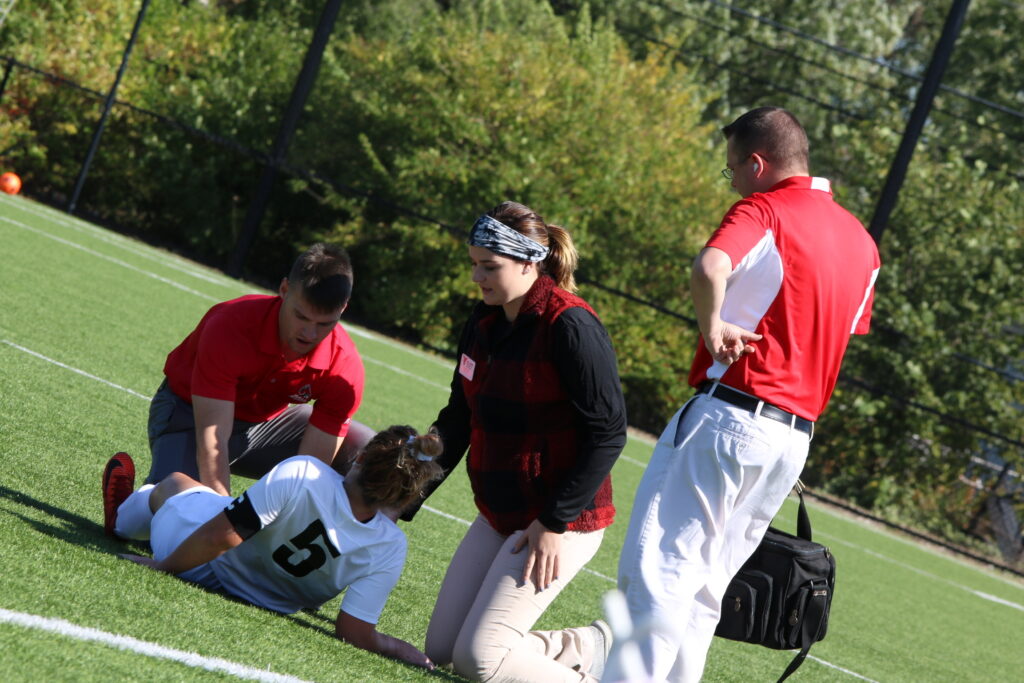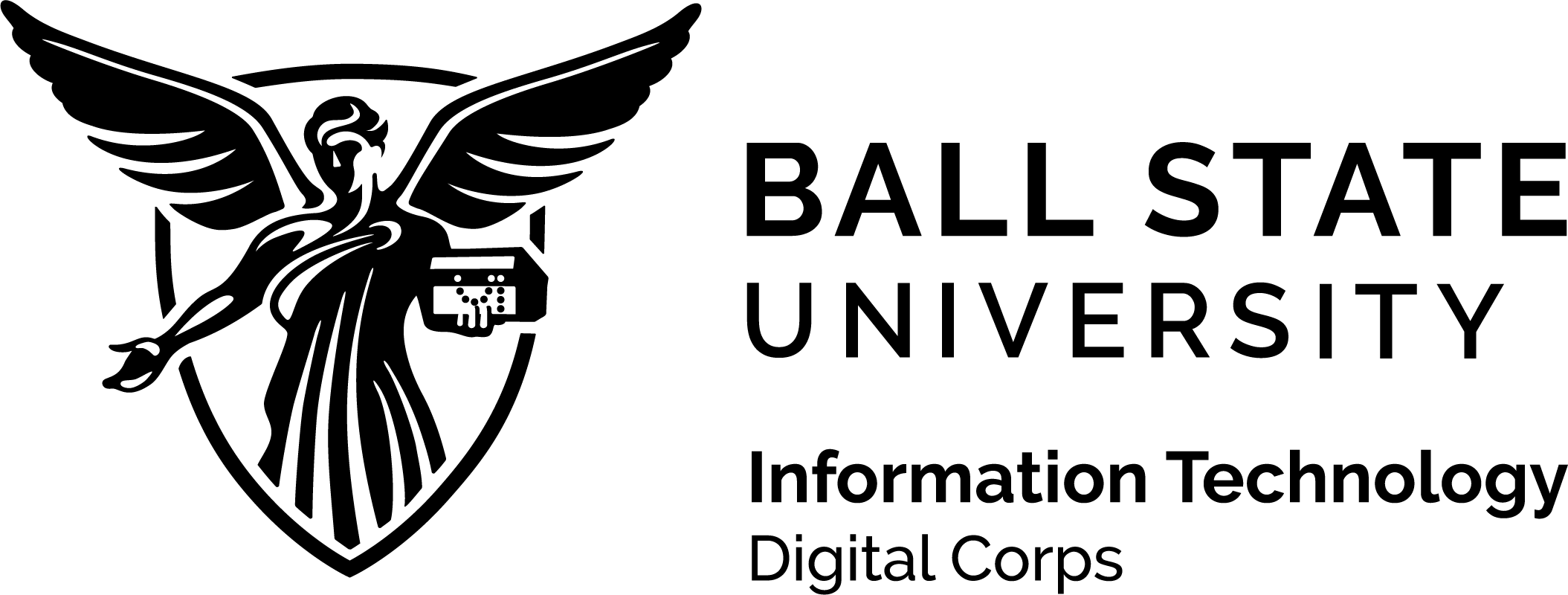
Are you entering the workforce? If so, some of your many thoughts may be:
- Will I find a job?
- Am I okay with moving? Well, where to? How far?
- What about compensation? And the other benefits?
- How is the workplace environment? Am I a cultural fit?
- And their diversity and DEI (Diversity, Equity & Inclusion) Efforts?
As the end of the semester/school year rolls around, graduates everywhere are worrying about the next step of their lives after commencement day. Wondering what life has in store for them and wondering how they are going to adjust to post-graduate life.
Today’s job hunt can be stressful to say the least. But after speaking with some of the newest Digital Corps staff members, there is a light at the end of the tunnel.
Getting the Job
This is where it all starts. The first job is where you enter into the workforce and it gives you the first impression of the rest of your career. But no pressure.
So, how do you get the first job? What are the steps? Well, everyone you ask will tell you a different story.
They will tell you how they got their first job from a previous opportunity or internship. Or how they applied to 500 different opportunities, and they chose the first offer they were given. Almost always they will tell you how their path was “not traditional.” And that is the truth of it all. Every path is different and “not traditional.” Because in today’s job search there is no tradition.
To give some ideas of what today’s job market looks like let’s hear from Digital Corps Communication Team Lead Maggie Lewis.

Maggie’s Journey
Throughout her career at Ball State, Maggie was always on the go. From being a member of the Communication Team at the Corps, holding various internships, coaching soccer at Muncie Central, and playing soccer on a team of her own, sitting still was never part of Maggie’s routine.
So, when it came to graduation and finding her first job outside of college, it only made sense Maggie had things lined up and ready to go before her cap n’ gown was sent to her door. Throughout her senior year, she worked part-time with an agency in Indianapolis, and by the time she started the job hunt she was offered a full-time position with said agency.
“I didn’t really have the stress of applying for jobs while I was in my final semester, which is really nice,” Maggie noted. “But I’m a very paranoid person and, like, in the back of my head, I’m asking myself, well, what happens if something falls through or, you know, I want to have a backup plan. So, I did apply for other jobs.”
While casually applying for other jobs, this is the first time Maggie realized the difficulty of finding the perfect fit. While most of the places she was applying for were pretty competitive like LEGO or NASA, she wasn’t finding many places that were interested in interviewing her.
Quickly, Maggie realized that part of the reason companies may not have been reaching out was because of her non-specific background. She was interested in and wanted to pursue a combination of her major both in written and visual storytelling, but many employers found it hard to bring on someone who didn’t have a specific specialty.
“I was in a weird situation where I wasn’t sure if I wanted to do graphic design or writing because my degree was in both,” she elaborated. “So, I applied to a lot of both. But they [employers] didn’t like that my degree wasn’t fully in just one. So, I got rejected from everything I applied to.”
But Maggie didn’t let these rejections hold her back, as she still had the job offer in Indianapolis. Thus began Maggie’s transition from school to post-grad agency life.
As many say, this transition is a difficult one. Not only are you learning how to survive without the pressures of school on your back, but also you are entering into a completely different schedule with different deadlines, responsibilities, and time management qualifications. Maggie attests to this saying the transition into the 9-5 was hard on her and she understands the fear that college grads have.

“Entering the workforce, the 9 to 5 just sitting eight hours a day and typing on my computer, writing things was horrible. It was exhausting and I just, I felt so gross for at least the first I’d say a month, month and a half just, and I had a headache every day at the end of the day, I just felt like I had done nothing. Like I just, my body felt achy. So that was for me, the biggest adjustment was going from, you know, part time jobs and doing a bunch of different little things and making that into like an eight-hour day.”
After only a couple of months at her gig in Indy, Maggie started feeling the weight of this transition and spotting the red flags in her new place of work. With toxic fights, heavy workloads, and empty promises, she knew it was time to look for the next thing for her and her career.
So, it was back to the drawing board! She applied for different jobs looking for anything in the Communication field and (with some good old-fashioned luck) the Digital Corps was hiring. Maggie always wanted a permanent team lead for the Communication Team at the Corps and when she saw there was a possibility to develop that position at the Corps, she jumped on it.
Flash forward a couple of years and Maggie has transformed and taken advantage of her position and with the flexibility the Corps offers, she can work part-time marketing and coaching gigs to give her some spontaneity and take away from the lack luster 9-5 feeling she had before. With her unique experience and honest takes Maggie has a lot of advice to offer to graduating students.
Insights and Lessons from Maggie:
You cannot plan everything.
“So, I am the type of person that has an idealized plan in my head of how I want my life to be. So, I would tell myself and other grads that the first job is not going to be the job. And I think that’s important. Getting the first job is arguably the hardest thing and it, it probably most likely is going to suck and you’re not going to stay there forever.”
Use your first job to your advantage.
“Make the most of it and learn as much as you can, so that way you can find a better job. I just went to work with a really bad attitude. I was like, ‘I have to work 40 hours a week. I’m doing the same stuff every day.’ Overall, just negative. So, I would have also told myself to be more positive about it and it probably would have made it less miserable to just be in like the 9 to 5 grind because I mean, it’s tough and it takes a while to get used to. So having a better attitude and learning as much as you can and just understanding that it’s probably not going to be where you are forever, just make the most of it while you’re there to prep you for the future.”
Do the research.
“I would say do the research. That’s something I did not do. You know, look at GlassDoor, look at social media, look at who this company is working with and what they do. You know, you really want to feel like it’s somewhere you would be happy. I think the best way to do that is by trusting the people who work there. It’s pretty popular to message people like, ‘hey, like, tell me about what you do and if you like your job’ but nobody’s going to tell you they hate it because that will come back to bite you, especially if their company tracks what they’re doing, so Glassdoor is huge.”
Use Job Offers to Your Advantage.
“You don’t always have to take the first offer but use that first offer to your advantage when other companies are interviewing with you or whatever it may be and really just trust your gut like if something feels off.”

It’s Your Turn
If you have taken the time to read through this portion of The Woes and Pros of Entering the Workforce it is most likely that you yourself are entering the workforce as well. This is not a little task, and it is not going to be an easy one either.
After reading this blog, remember to know your worth, take initiative with your prospects and don’t be afraid to take a step back and evaluate where you are. You are on your own timeline, and you can and should do whatever it is that makes you happy and keeps you afloat.
With Maggie’s advice and some new knowledge on the “nontraditional careers path,” take your time and truly find what is best for you. Only live your own path, don’t live through the path of someone else.



